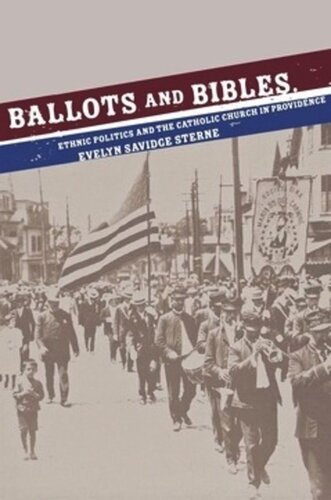

Most ebook files are in PDF format, so you can easily read them using various software such as Foxit Reader or directly on the Google Chrome browser.
Some ebook files are released by publishers in other formats such as .awz, .mobi, .epub, .fb2, etc. You may need to install specific software to read these formats on mobile/PC, such as Calibre.
Please read the tutorial at this link: https://ebookbell.com/faq
We offer FREE conversion to the popular formats you request; however, this may take some time. Therefore, right after payment, please email us, and we will try to provide the service as quickly as possible.
For some exceptional file formats or broken links (if any), please refrain from opening any disputes. Instead, email us first, and we will try to assist within a maximum of 6 hours.
EbookBell Team

4.7
56 reviewsBy the mid-nineteenth century, Providence, Rhode Island, an early industrial center, became a magnet for Catholic immigrants seeking jobs. The city created as a haven for Protestant dissenters was transformed by the arrival of Italian, Irish, and French-Canadian workers. By 1905, more than half of its population was Catholic—Rhode Island was the first state in the nation to have a Catholic majority. Civic leaders, for whom Protestantism was an essential component of American identity, systematically sought to exclude the city's Catholic immigrants from participation in public life, most flagrantly by restricting voting rights. Through her account of the newcomers' fight for political inclusion, Evelyn Savidge Sterne offers a fresh perspective on the nationwide struggle to define American identity at the turn of the twentieth century.In a departure from standard histories of immigrants and workers in the United States, Ballots and Bibles views religion as a critical tool for new Americans seeking to influence public affairs. In Providence, this book demonstrates, Catholics used their parishes as political organizing spaces. Here they learned to be speakers and leaders, eventually orchestrating a successful response to Rhode Island's Americanization campaigns and claiming full membership in the nation. The Catholic Church must, Sterne concludes, be considered as powerful an engine for ethnic working-class activism from the 1880s until the 1930s as the labor union or the political machine.